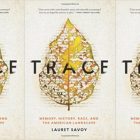Myths and Mundanity in Jill Bialosky’s The Deceptions

The Deceptions
Jill Bialosky
Counterpoint Press | September 6, 2022
Jill Bialosky’s latest novel The Deceptions follows an unnamed narrator in New York City who finds solace in the antiquity exhibits at the Metropolitan Museum of Art. While viewing the sculptures inspired by Greek, Roman, and Egyptian myth, the narrator uses the objects and the corresponding stories that inspired their creation to consider the fractured state of her marriage, meditate on her complicated experience with motherhood, make sense of her dissatisfaction with the state and success of her career, and reflect on the intense but troubled friendship with the Visiting Poet, a writer who taught at the same private school the previous school year. With the narrator’s insightful contemplations, the novel poses big questions: Why does women’s art receive lesser acclaim? How does a marriage move forward without desire? Why are we drawn to myth and fiction to make meaning of our own messy lives? A poet as well as a novelist, Bialosky deftly balances these vast universal questions with tight descriptions of personal, arresting images. The result is a pressing, mesmerizing novel that explores the intense emotional journey of a writer, teacher, and mother grappling with the shifts in these identities in the aftermath of betrayal.
The Deceptions opens in October with the narrator inside her New York City apartment, which she shares only with her distant husband now that her son has recently moved away to college. Outside, the narrator tells us, the sky is dark and rain falls in sheets, bashing against the windows. This atmospheric start infuses the scene with both drama and scale, and it’s fitting for a novel concerned with weighty themes and populated by Greek and Roman gods and goddesses. It also sets up the narrator for her admission that sets the story in motion: “Something terrible has happened and I don’t know what to do.” The details of this something terrible are revealed slowly throughout the course of the novel, building a suspense that draws the novel forward.
As the terrible thing is teased out, the plot throughout The Deceptions features additional, on-page challenges for the narrator—her neighbor grates at her and is having an affair; her son is struggling with classes and then assaulted at college; her book nears publication and secures a review in the New York Times. But overall, the novel is largely interior. We’re privy to the narrator’s reactions to these events—she is at once jealous of and annoyed by her neighbor; she worries that her son’s problems are her fault; she stresses about the reviewer assigned her book, convinced it will be Hugh Pynyon, a fictional, notorious misogynist. Throughout, the narrator is constantly concerned with the Visiting Poet and thinking about the events, both terrible and trite, of the previous year. Often, the narrator remarks that her mind races: “My mind won’t quiet. The impending review. The Visiting Poet. The work it requires to repress. My mind grinds through it all.” The present-tense narration establishes both an intimacy and an urgency that underscores the novel’s central suspense. But it’s the narrator’s swift leaps from work to family to art, from subject to myth and back again, that suggests the narrator’s desperation to settle and her inability to do so.
The real, physical world’s sharp interruptions of the narrator’s meandering thoughts reveal her preference for the order of her imagination, the comfort of assigned meaning in her myths. This is relatable—her interruptions often come in the form of making dinner, helping her son with his homework, or chatting with her smart, wealthy neighbor about her own troubled marriage. These are not only reminders of her existence within her home but also confirmation that she is expected to offer her time, her emotions, and her support to others before pursuing her own desires, in art or otherwise: “A working mother, poet, an oxymoron in itself, who has the time? I go back to my husband.”
The Deceptions is attuned to the physical interiors that the narrator inhabits as well. The narrator teaches at the same all-boy private school she has for decades, with thick wooden desks and high windows. She adjusts to the distance in her marriage in their shared apartment, next to the egg cup her husband bought her on a trip to Italy when they began fertility treatments. She escapes to the Met, where she finds refuge and reflection in art and myth. The book includes photographs of the paintings, sculptures, and other artifacts that the narrator directly on the page. While this visual could be dismissed as distracting, the photographs add to the immersive sense of the physical space. Even more, the narrator’s readings of these pieces of art are beautiful and made all the more so because we can follow along.
As the narrator offers commentary, she consistently returns the origin myths, some coming up more often. She references Aphrodite, Athena, and Heracles. The narrator’s husband is often cast as Poseidon; she considers her similarities to Penelope. The myth of Leda and Zeus as the swan is the topic that the narrator explores in her forthcoming poetry collection. Early, she describes the book, titled The Rape of the Swan, as “A sonnet sequence that ends in violation and loss.” She is confident it’s her best work, and readers are clear that the stakes are high. Approaching the middle of her career, the narrator is unsatisfied about her achievements as a teacher and a poet; she questions whether she should have tried to secure a job as a professor or publish with a bigger press. The narrator sees this book as her chance for more.
Bialosky employs a subtle framework in the novel featuring the narrator’s book that pays off beautifully when this shapes the end of the story. Even without the promising literary framing, the novel is an unforgettable read. Perhaps the greatest achievement of The Deceptions is the captivating depiction of mundane reality. The artifacts of a marriage—mementos from an early trip, half-broken keepsakes that remain on the shelves. The rainstorm outside the narrator’s apartment in the opening scene. Bialosky elevates the ordinary with her exceptional attention to detail and her poignant observations. With the consistent comparison to Heracles’ labors, Leda and the swan, Penelope and the suitors, and other myths, the layers of meaning and emotion in the everyday become awe-inspiring. Early in the book, the narrator considers her attachment to her inner life, her imagination, as she’s walking through the Met. She sums up this drive at the heart of The Deceptions nicely: “To want more is to challenge the gods. To want less is to decompose.”



